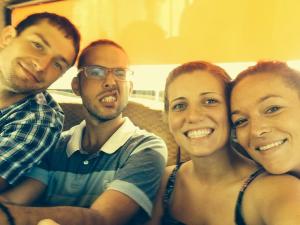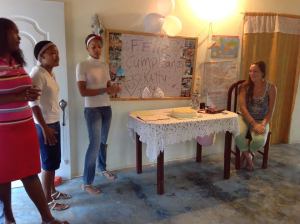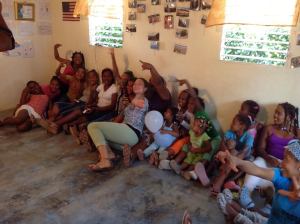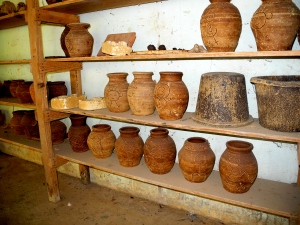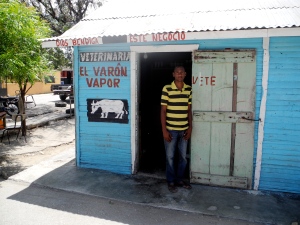Well folks, it’s official. I’ve finally booked my plane ticket back to the United States. I knew this time would eventually draw near, but despite all of the epiphanies I’ve experienced while living in a foreign country, this might be the most difficult thing I’ve had to wrap my head around yet. Less than two months until I am officially a Returned Peace Corps Volunteer.
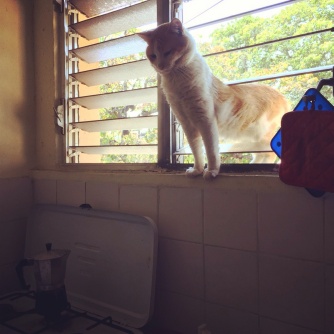
Don’t worry – Mio/Neal got his plane ticket too!
I was struck with a similar wave of disbelief around this same time last year, when my original 27-month commitment as a Volunteer drew to a close and all of the people I had originally come into country with packed up their lives here to continue on elsewhere. The countdown clock essentially restarted once I decided to stick around for an additional 13 months. Needless to say, time has flown by and it is now my turn to do what my peers were brave enough to do last year.
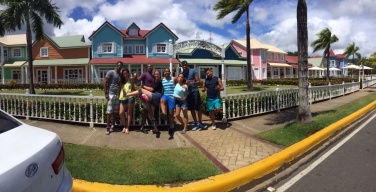
Group trip to Las Galeras, Samaná for Easter! The last time I had been there was almost 3 years ago when we celebrated 4th of July with the group I entered the country with.
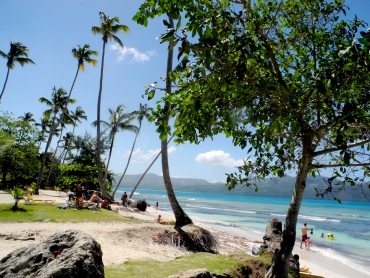
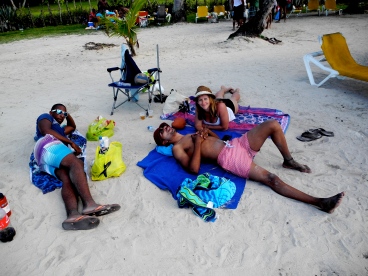


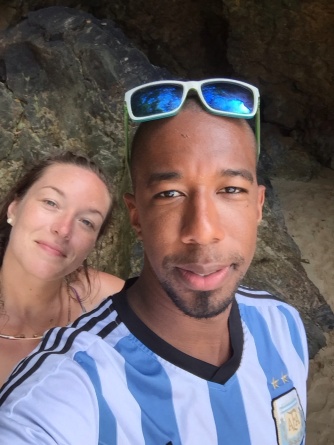
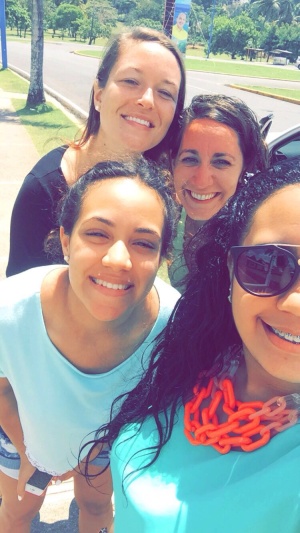

Playa Rincón – my new favorite beach!
For the past several months we have been in the thick of “site development” – identifying, investigating, and visiting communities and groups around the country that have expressed interest in collaborating with Peace Corps. The process is tedious but stimulating. Not only do we explore all corners of the country, but we also meet motivated people who are doing what they can with the limited amount of resources they have to make their community a better place. Site development involves multiple meetings, orientations, security checks, rounds of paperwork, and the coordination of at least 9 different Peace Corps employees/Volunteer Leaders plus that of the respective community counterparts. The placement of a Community Economic Development Volunteer suggests that there is enough motivation and existing infrastructure (among other factors) within a community to build off of; the ultimate goal of the partnership is increase economic activity, improve business skills and practices among locals, and provide an intimate intercultural exchange between the Volunteer and members of the community.
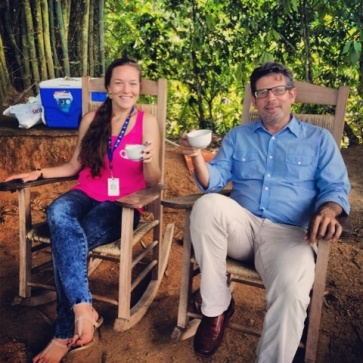
My boss, Michael, and I out on the road. We never go too long without a cup of coffee.
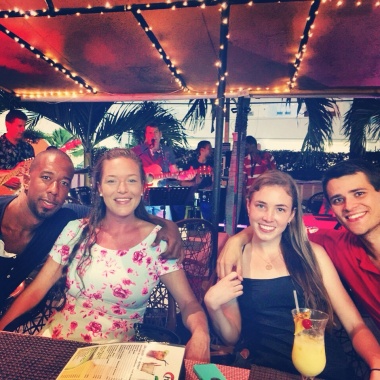
After work activities – watching Michael’s band play (he’s in the background on the far left)!
One of the main roles I’ve played in this process is visiting and prepping the host families. The group that the Volunteer is partnered with is in charge of identifying which family is both willing and able to host a Volunteer for at least his/her first four months at site (families do receive a monthly stipend for their service). Though challenging for those of us who are used to an American-sized personal bubble, staying with a host family is both the most authentic and effective way to become integrated into a community and develop language skills.
Some families have heard of Peace Corps or have met Volunteers before and seem to be somewhat familiar with American customs; most are anxious to receive feedback about how to welcome a foreigner into their home. Though my level of Spanish and knack for Dominicanisms typically make this orientation go smoothly (though I have been mistaken as the Volunteer that is coming to serve in the community), I try to chock each visit full with tips while reminding them that the person who is coming to live with them has been in the DR for less than three months – a fresh slate compared to my three years: “Not all Americans have blonde hair and blue eyes.” “Wanting privacy does not mean that they are mad at you, but rather that they’d like some time alone.” “If you eat rocks for breakfast, they will also try to eat rocks for breakfast – don’t make them anything special. They are just another member of your family.”
Though the orientation lasts only one night, it puts the families at ease and helps to clear up what could potentially be a serious misunderstanding. Not to mention, I get to enjoy the cooking and company of a loving doña – aspects that lack from my service here in Santo Domingo. I don’t think that I will ever forget Quisqueya, a future host mom in Montecristi, asking me upon arrival if had to go #1 or #2 to make sure that she had provided me with enough toilet paper and water to flush the toilet. Or snuggling in bed with Ana from Dajabón, who I’d met just hours before, while we watched a poorly dubbed version of Nanny McPhee and sipped sweet coffee on a quiet, campo night. All of the Dominican families that I stayed with during these visits were gracious hosts who reminded me what it is that I love so much about this culture – warmth, camaraderie, conversation, faith, and leisure.
Perhaps it has been these visits and the fond memories they’ve evoked that are making this transition so frightening. When experiencing an unfamiliar place or culture for the first time, the very quirks that make it “it” are often the most difficult to adjust to. Noise, food, past times, landscapes, structures, relationships, and histories – the threads of a culture’s fabric; a blanket that comforts an opportune soul. What some Volunteers spend their entire services adjusting to is now home to me; I am wrapped up in the craziness of this culture so comfortably snug, or as the Dominicans say, aplatana’a. Thinking about departing this island of doñas, guaguas, and guineos after accomplishing such integration and appreciation for it is almost painful.
In the meantime, I have quite a few other things to distract me from truly processing, accepting, and preparing for June 15th. Namely, coordinating the National Conference for Construye Tus Sueños, which takes place next week. Here’s a video of last year’s conference to remind you how much I love this initiative that is dedicated to promoting entrepreneurship in youth: https://www.youtube.com/watch?v=aAlPujF05fc

“The secret of change is to focus all of your energy, not on fighting the old, but on building the new.” – Socrates
